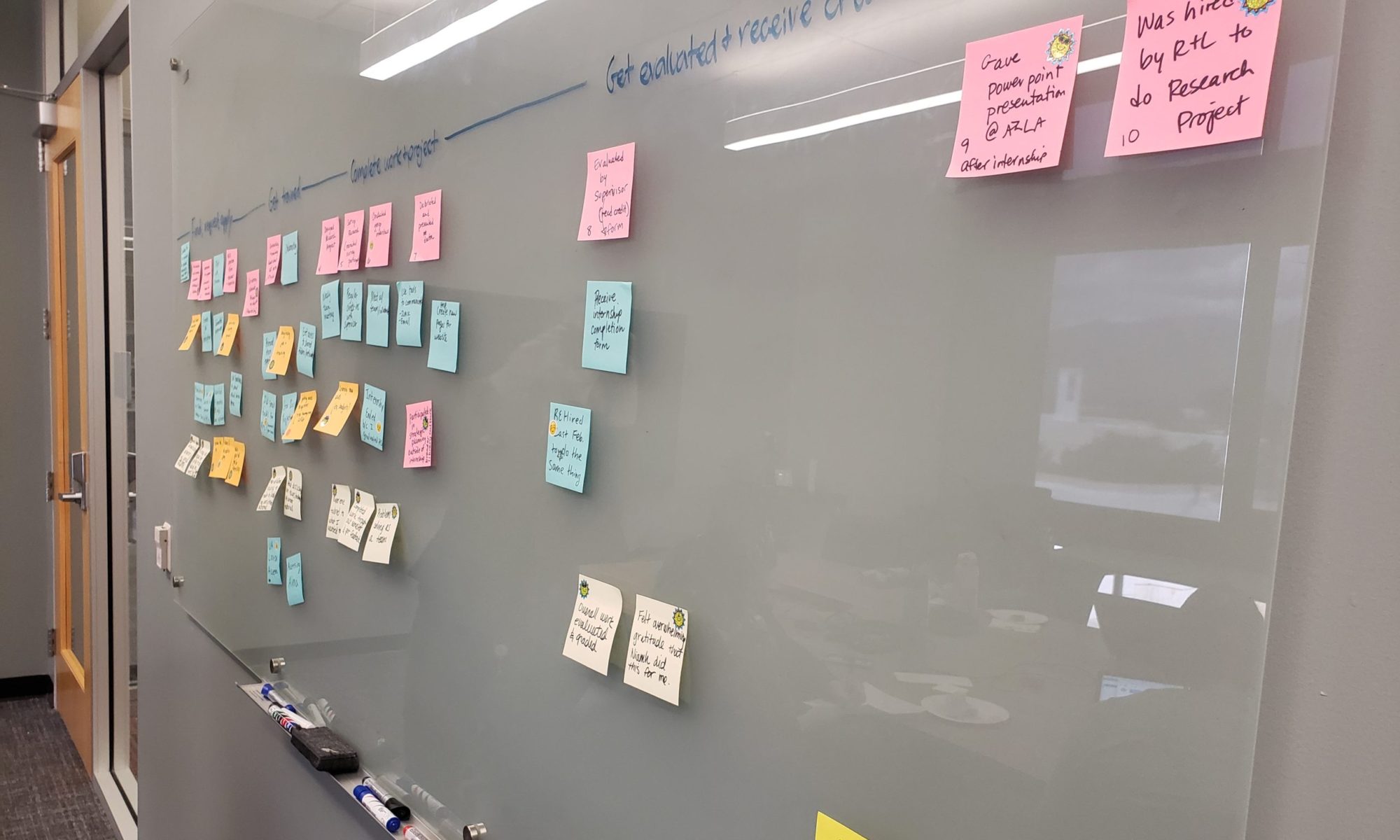
User interviews are a great way to learn about and understand the current user experience. They require asking a lot of questions, so asking the right types of questions matters.
Awhile back, I created a basic training for library employees on how to conduct effective user interviews. I’ve pulled this together as a resource for others.
Don’t lead.
Staying as neutral as possible will ensure more authentic responses from your participants.
| Leading question | Non-leading question |
| Is research funding a big stressor? | What has been causing you stress lately? |
| Did you come to the library to study? | Why did you come to the library today? |
| Have you noticed that it’s cold in the library? | What do you notice when you visit the library? |
| When you said X, did you mean Y? | Can you tell me more about what you meant when you said X? |
Get them to talk specifics and stories.
What people say is not always what they do, so try asking them to recollect specific experiences.
| General question | Question that invites specifics and stories |
| How do you usually conduct research? | Can you walk me through your last experience conducting research? |
| Tell me about your teaching challenges. | Tell me about a time you had a teaching challenge and how you handled it. |
| How do you tend to do that? | Can you give me an example? |
Be encouraging but neutral.
There are no right or wrong answers, and all insights are valuable. Don’t insert your own reactions or ideas. Try to keep your poker face and manage expectations.
| Leading | Neutral |
| That’s a fantastic idea – I love it! | Interesting. Thank you for sharing that. |
| Yeah, but… | I appreciate your ideas. |
| We tried that once before, but… | Thank you, this is really helpful for us to hear. |
Listen and dive deeper.
As advocates for our libraries and organizations, we are tempted to talk about ourselves and the services we offer. We also might want to share our own experiences. But this can harm the interview, distracting from the focus: learning about the user.
User interviews are not intended as two-way conversations. As the interviewer, you should ask questions, listen to the responses, then ask more questions. If there’s a moment of silence, that’s fine! Avoid jumping in. Be comfortable with seven-second breaks where no one is speaking. Allow the participant time to process their thoughts and share their experiences.
Avoid such comments as:
- You probably didn’t know that the library already…
- We’ve already heard…
- Don’t worry, we’re trying to….
- We tried that before but…
Insert “why” and “how” questions to dive deeper.
- Interesting. Can you tell me why?
- Why is that important to you?
- Why did you approach it that way?
- Interesting. Can you tell me how?
- How did that make you feel?
- Why do you think you felt that way?
- Why is that important to you?
- How do you currently deal with this?
- Why does that example come to mind?
Other helpful follow-ups include:
- Tell me more about…
- Can you expand on that?
- Is that what you expected?
- Can you give me an example?
- What did you find frustrating about that experience?
- What might have improved upon that experience?
- Do you have another example of…?
If participants don’t think they are helping.
Participants will occasionally express concern that they aren’t being helpful. They might say things like, “I don’t know enough about…” or “this probably isn’t the type of response you’re looking for.” To respond to this, try things like:
- We’d like to hear from everyone and your input is really valuable to use. Can you tell me more about…?
- This is exactly the sort of information we’d like to hear. Why…?
- Don’t worry, I have lots of other questions! If you don’t have more to say about ____, can you instead tell me about…?
If participants ask you questions.
Participants occasionally will ask you questions about the project or related services. It’s probably fine to talk with them about these details at the close of the interview (depending on the project), but you want to avoid distracting your conversation with these details while you’re still in the midst of the interview itself.
If a participant starts asking you questions, try something like:
- I can’t answer that right now, because we’d like to hear from you first. But if you still want to know more when we’re done with the interview, I’m happy to share more.
- I’m happy to tell you more about X, but first let me ask you…
I hope you find these tips helpful! I’d love to hear more tips or suggestions in the comment sections, as this (like everything) is a work in progress.
